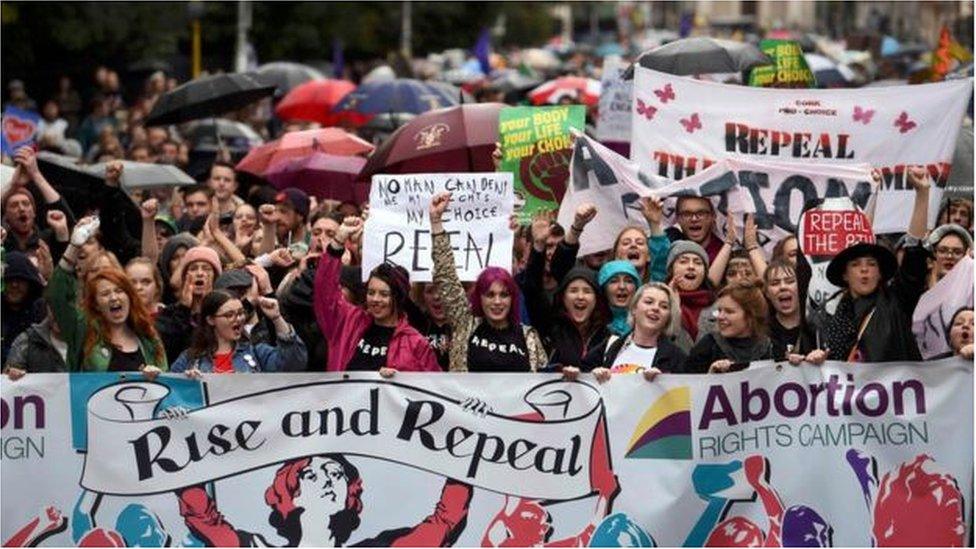Irish PM Varadkar backs abortion changes
- Published
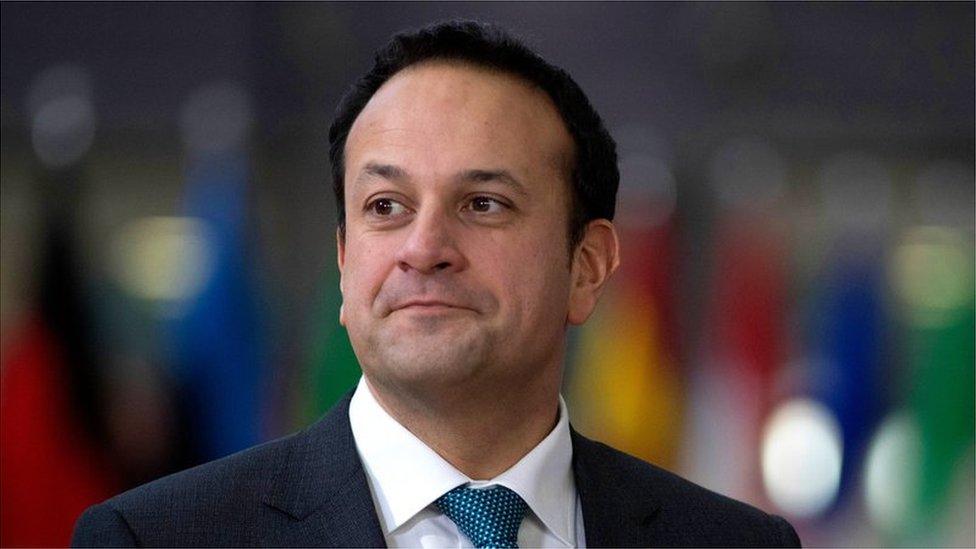
'Our laws are too restrictive and need to be reformed and need to be liberalised,' said Leo Varadkar
The Irish Prime Minister has said the country's laws on abortion are "too restrictive, and need to be reformed".
Speaking in Limerick on Friday, Leo Varadkar reiterated his views that the law needs to be "liberalised".
The Dáil has been debating the removal of the 8th amendment of the Irish constitution.
Earlier on Friday, Fianna Fáil leader Micheál Martin said he had changed his mind on abortion law due to the "real damage" it causes to women.
"Abortion is a permanent and present reality" in Ireland, he told RTÉ radio.
Mr Martin said in the cases of rape, incest and life-limiting conditions, the 8th amendment was "cruelly inflexible" for women.
He said he did not see any way to deal with cases of fatal foetal abnormalities under the existing amendment.
Mr Varadkar said he did not believe Micheál Martin's stance on the issue put extra pressure on him to clarify his views publicly.
He added that he had to listen to public opinion before deciding on the wording of any question put to the public.
"I want to actually know what that question is before asking people to say yes or no," he said.
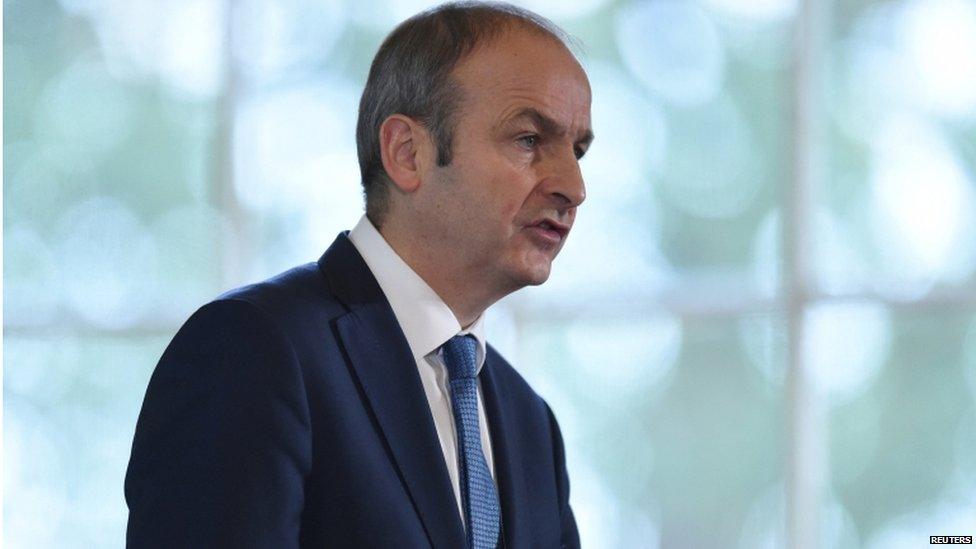
Micheál Martin said abortion was "a permanent and present reality"
The Irish constitution acknowledges "the right to life of the unborn and with due regard to the equal right to life of the mother".
Abortion is therefore only legal in the Republic of Ireland if the mother's life is at risk.
Leo Varadkar said he had a "particular responsibility as Taoiseach to make sure that the wording, the actual question that we put to the people, is the right one".
He added: "That it's sound and that it isn't going to be open to interpretation or challenge because it is a question that I, as Taoiseach and as government, will put to the people, so I want to actually know what that question is, before asking people to say yes or no to it," he said.
He expected the public to know the wording of the proposed referendum "in a matter of weeks", he said, adding that he was waiting for advice from the Attorney General.
May referendum
The Fianna Fáil leader's change of stance could put him at odds with many within his own party.
The current debate on removing the 8th amendment follows recommendations from a Citizens' Assembly and a parliamentary cross-party committee .
Mr Varadkar has said the government will hold a referendum on the 8th amendment in May.
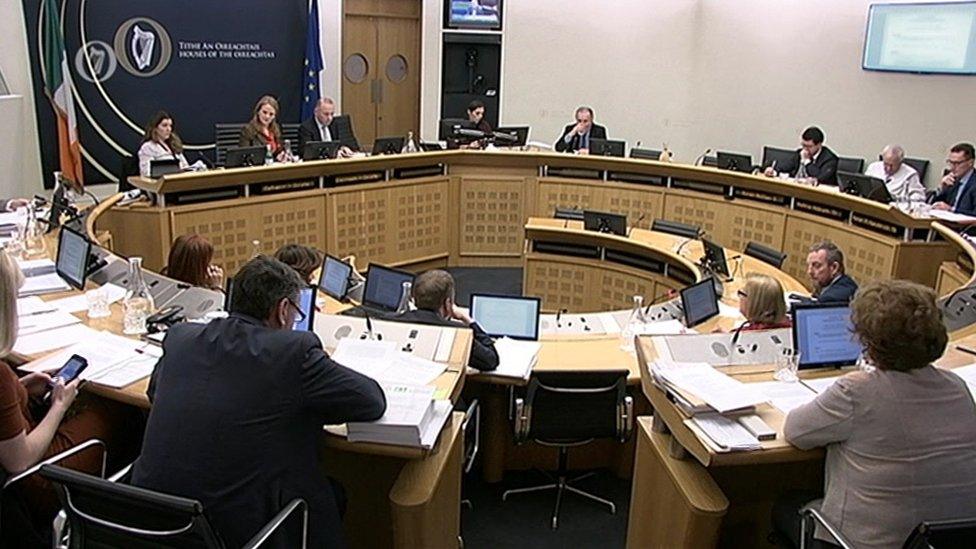
A parliamentary cross-party committee recommended changes to the abortion law
Speaking in the parliamentary debate on Wednesday evening, Fine Gael Minister of State John Paul Phelan said he could not support any legislation which would see the termination of a viable pregnancy.
He also said he did not believe a proposal from a Dáil committee - that making abortion available up to 12 weeks into pregnancy - would be acceptable to the public.
"Not only do I believe it's unacceptable, but I think there is quite a considerable chance that if it's put to the general public it will be defeated," said Mr Phelan.
Calls for the repeal of the 8th amendment gathered impetus following the death of a pregnant woman, Savita Halappanavar, at a Galway hospital in 2012.
Last November, the president of University College, Dublin's students union was voted out of her post for her anti-abortion views.

Abortion in the Republic of Ireland
The Republic of Ireland has a near total ban on abortion.
In 2013, abortion was legislated for under certain conditions - when doctors deem that a woman life's is at risk due to medical complications, or if she is at risk of suicide.
The law does not allow for terminations in cases of rape or incest, or when there is a fatal foetal abnormality.
The law was introduced in the wake of the case of Savita Halappanavar who died in a Galway hospital in 2012 after she was refused an abortion.
In what was known as the X Case of 1992, a 14-year-old rape victim was prevented from travelling to England to terminate her pregnancy by the High Court.
This ruling was overturned by the Irish Supreme Court and a referendum approved a further update to the constitution, stating that the eighth amendment did not restrict the freedom to travel to another state.

- Published13 December 2017
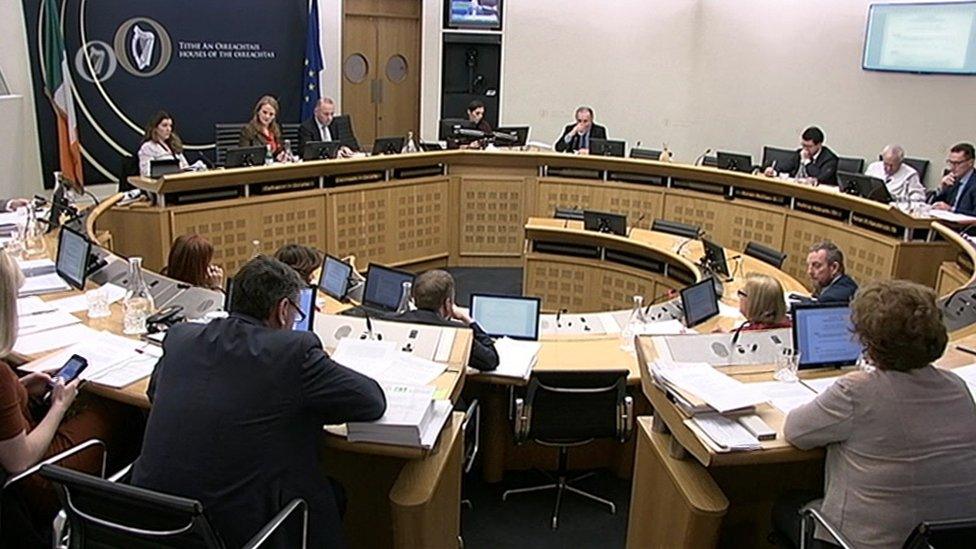
- Published1 November 2017
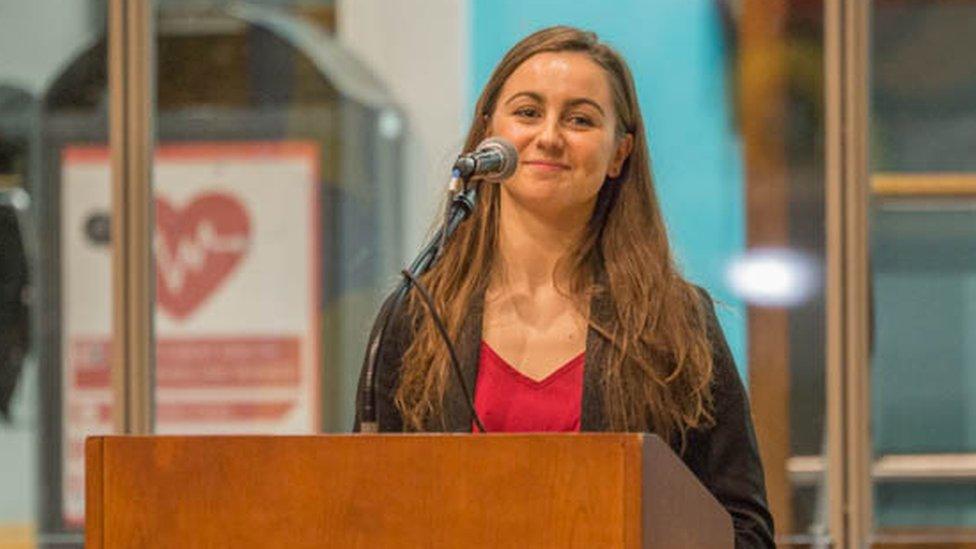
- Published22 April 2017
